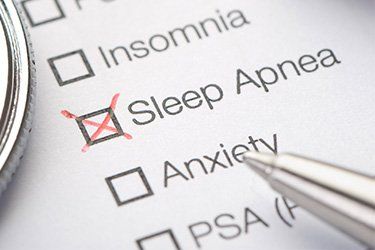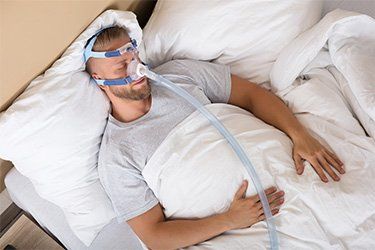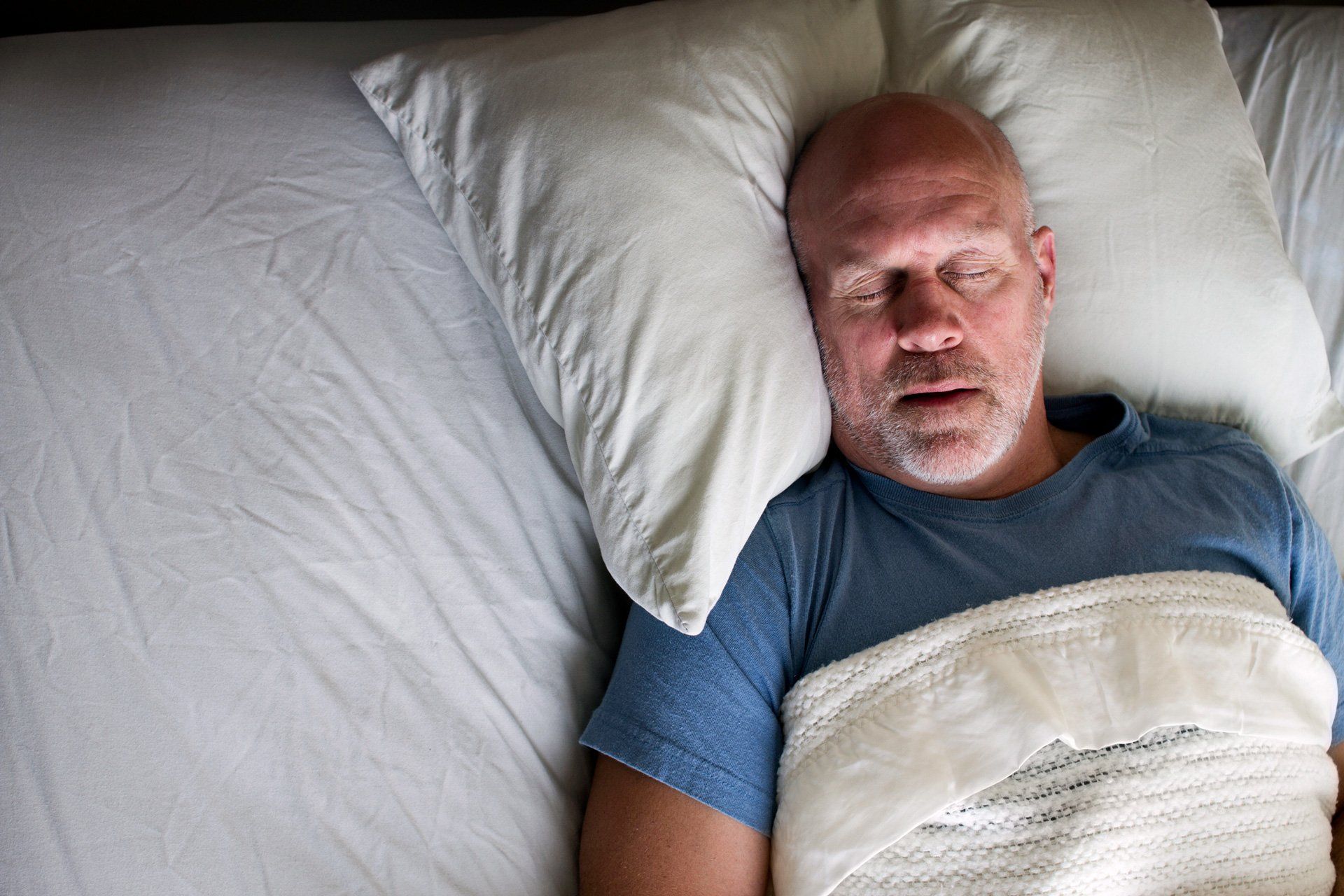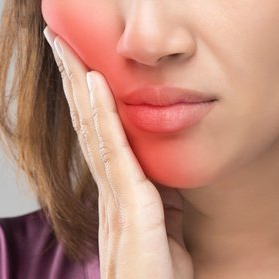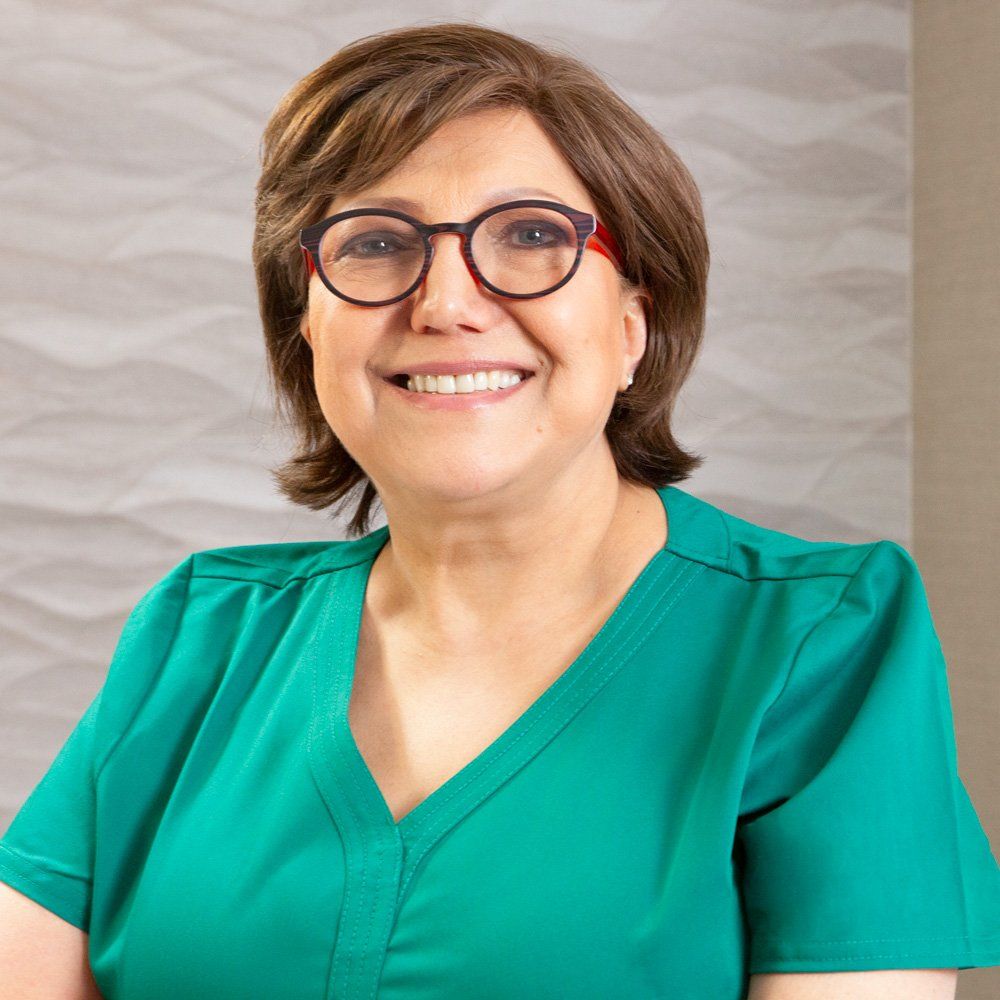The Link Between Obesity and Obstructive Sleep Apnea Syndrome (OSA)
Obesity and obstructive sleep apnea (OSA) go hand in hand. Obesity increases one’s risk for OSA, and both obesity and OSA increase one’s risk of heart disease. Patients with obstructive sleep apnea need help to get the high-quality sleep that is vital for their overall health and wellbeing.
Breath of Life Dental is helping patients overcome OSA by expanding their airway volume with a new FDA-approved oral appliance for
sleep-disordered breathing which yields permanent results. This appliance enables you to receive life-giving oxygen throughout the day and during sleep. Keep reading to learn more about the
link between obesity and obstructive sleep apnea,, how these conditions can negatively affect your health and happiness, and how sleep apnea patients can benefit from the revolutionary oral appliance treatment offered by
Dr. Maryam Seifi at Breath of Life Dental.
What Exactly Is Obesity?
Obesity is a medical condition characterized by an excess accumulation of body fat to the extent that it can negatively affect a person’s health. It is commonly measured using the body mass index (BMI), which is calculated using a person’s weight and height. Obesity is defined as a BMI of 30 or higher. Learn more about obesity and its impact on health.
Causes of Obesity
Eating too much food, regardless of how healthy the food is, can be bad for the body. This is because food and drinks contain calories, which are essentially the units of measurement used to describe how much energy your body produces from the food or drink you ingest.
Obesity results from an imbalance between the amount of calories consumed and the amount of calories burned through physical activity and your natural metabolic processes. Many people have firsthand experience with this as they age. In childhood, you’re more active. You may eat a lot, especially during growth spurts, but you tend to burn plenty of calories through playing, joining sports, and other physical activities.
As you reach adulthood, you may attend college or start a desk job. Suddenly you’re a lot less physically active than you were as much of your day is spent sitting to study or work. If this change in activity isn’t accompanied by a change in eating habits, you can start to gain weight. This is a common occurrence for many adults all over the world.
Health Complications of Untreated Obesity
Long-term obesity can lead to many unwanted health conditions, including:
- Cardiovascular diseases: Obesity is a major risk factor for heart disease and stroke because it can lead to high blood pressure and elevated cholesterol levels.
- Type 2 diabetes: Obesity is closely linked to insulin resistance, which can increase your risk of developing type 2 diabetes. This is especially true if your diet is high in sugars and carbohydrates.
- Respiratory issues: Obesity can lead to sleep related breathing disorders such as sleep apnea and general breathing problems due to excess fat affecting the respiratory system.
- Joint problems: Excessive body weight puts additional stress on the joints, leading to conditions like osteoarthritis.
- Psychological and social effects: Obesity can contribute to low self-esteem, depression, and social stigmatization, which can affect a person's overall well-being.
How to Prevent Obesity
In order to prevent obesity, it’s important to adopt a healthy lifestyle. This includes balanced nutrition, regular physical activity, and other positive behaviors. Here are some key strategies to help prevent obesity:
- Maintain a balanced diet. Focus on a diet rich in vegetables, whole grains, and lean proteins. Limit the intake of processed foods, sugary beverages, and high-fat, high-calorie snacks. Keep in mind that even “healthy” options like sports drinks and protein shakes can have tons of calories, carbohydrates, and sugar; these are best avoided unless you maintain a high level of physical activity. For more detailed guidance, consider Breath of Life Dental's recommendations on nutrition.
- Pay attention to portion sizes. It can be easy to overeat, especially at social gatherings or while watching movies or TV shows. Moderation is key to maintaining a healthy weight, and paying attention to portion sizes can help you enjoy the foods you love without overindulging. Learn more about healthy eating habits through dental patient education.
- Be physically active every day. Engage in regular exercise to keep your body strong and burn calories. This can be as simple as taking the stairs instead of the elevator, going for a walk around the neighborhood, or meeting up with friends to window shop at a mall. You can also look into local gyms, classes, or other activities in your community to help you stay active while having fun. Explore Breath of Life Dental's recommendations for integrating physical activity into your daily routine for better health and preventing obesity.
- Stay hydrated. Not only is water good for you, but you can have as much of it as you want because it has no calories. Choose water as your primary beverage and limit the consumption of sugary drinks like juice and soda that have calories. Breath of Life Dental encourages patients to prioritize hydration for overall health and weight management.
- Get enough sleep. Ensure you get enough quality sleep each night. Lack of sleep can disrupt your hormonal balance and energy levels, make you feel hungrier, and increase your risk of weight gain. For those struggling with sleep-related issues, the Vivos System offered by Breath of Life Dental can improve sleep quality and aid in weight management.
- Manage stress in healthy ways. Emotional eating and poor sleep can contribute to weight gain, so finding healthy ways to manage stress is crucial. Practice stress-reducing activities such as meditation, deep breathing, yoga, or even routine exercise. Breath of Life Dental's holistic approach to health includes stress management techniques to improve sleep and overall well-being.
How to Treat Obesity
The treatment options for obesity can vary based on the severity of the condition, individual health factors, and the underlying causes. It's important to note that a comprehensive approach involving dietary changes, increased physical activity, and education about food can be vital to handling obesity.
- Learn more about your food. It’s important to know what is in your food and what effects different ingredients can have on the body in order to make healthy food choices. There are many, many different schools of thought on what is healthy and what is not. It can get very confusing to figure out what is good information and what is bad information when it comes to nutrition. A great first step would be to simply learn about the different elements of food: what is a carbohydrate and what does it do? What is a protein and why do you need it? What is sugar and how does it affect your body? Take a look at the nutrition labels on some of your favorite foods, and if there is anything on the label that you don’t know what it means, look it up in a simple dictionary or encyclopedia to learn more about it. For more information on nutrition and health, visit Breath of Life Dental's recommended toothpaste and mouthwash page, which also offers advice on products that support oral health.
- Make sure you’re eating plenty of healthy foods. Once you know more about food and nutrition, you’ll be better equipped to make improvements to your diet. If you are already overweight or obese, you may want to work with a registered dietitian to develop a balanced and sustainable meal plan that reduces calorie intake and promotes healthy eating habits.
- Get plenty of physical activity. Regular exercise is fantastic for your overall health. This can be as simple as taking a daily walk around the block or joining a class at your local gym or community center. Choose physical activity that helps you feel more relaxed or that you enjoy doing to increase your chances of continuing it each day as a habit.
- Avoid scams. Simply eating well and being active can go a long way toward improving your health and supporting weight loss. Unfortunately, there are many people who prey on the insecurities or fears of others to sell unnecessary drugs, fad diets, and other “lose weight fast” schemes. In general, if it sounds too good to be true, it probably is. And if you’re ever in doubt, you should get advice from your physician.
- Don’t give up. If you are overweight or obese, remember that it didn’t happen overnight—so getting rid of the excess weight will take time. Focus on your end goal of improved health and do your best to make good choices every day. It will take consistent work and lifestyle changes, but the reward of a longer, better quality of life is well worth it.
Frequently Asked Questions about Obesity
Here are some questions that people frequently have about obesity and its effects.
What Is Obstructive Sleep Apnea?
Obstructive sleep apnea (OSA) is a sleep disorder characterized by repeated episodes of partial or complete blockage of the upper airway during sleep. These blockages, known as
apneas, lead to pauses in breathing and temporary reductions in oxygen levels. The word "obstructive" in obstructive sleep apnea refers to the physical obstruction or collapse of the airway, preventing normal breathing.
Key features of obstructive sleep apnea include:
- Airway obstruction: During sleep, the muscles and tissues in the throat and upper airway can relax excessively, leading to a partial or complete blockage of airflow. This can also happen if the tongue falls back against the airway during sleep.
- Pauses in breathing: The airway obstruction results in brief interruptions in breathing, often lasting for 10 seconds or more. These pauses in breathing can occur multiple times per hour throughout the night and reduce the level of oxygen in your blood while you sleep.
- Micro-arousal: As a response to the reduced airflow and drop in oxygen levels, the brain briefly signals the body to wake up. This can be brief, or a micro-arousal, where you may not even realize that you are waking up multiple times throughout the night. These micro-arousals interrupt the natural sleep cycle and lead to excessive daytime sleepiness, memory problems, high blood pressure, and more.
Signs and Symptoms of Obstructive Sleep Apnea
Common symptoms and signs of
obstructive sleep apnea include:
- Loud and persistent snoring
- Morning headaches
- Gasping or choking during sleep
- Difficulty concentrating and memory issues
- Excessive daytime sleepiness
- Irritability and mood changes
- Fatigue despite a full night's sleep
- Depression
- Weakened immunity
- High blood pressure
- Low sex drive
- Increased risk for stroke or heart attack
- Irregular heart rhythm
- Diabetes
Causes and Risk Factors of Obstructive Sleep Apnea
There are several medical conditions, genetic factors, and lifestyle habits that can increase your risk of developing obstructive sleep apnea, including:
- Obesity: Excess body weight, particularly around the neck, can increase the risk of airway obstruction during sleep.
- Family History: A family history of sleep apnea may contribute to an individual's susceptibility to developing this condition.
- Aging: The risk of obstructive sleep apnea tends to increase with age.
- Gender: Men are generally at a higher risk than women, although the risk for women increases as they age, especially after menopause.
- Neck Circumference: A thicker neck may indicate a narrower airway, which can increase the likelihood of obstruction.
- Anatomical Factors: Certain facial and throat features, such as a receding chin, a naturally smaller airway, or enlarged tonsils, can contribute to airway blockage during sleep.
- Alcohol and Sedative Use: The relaxing effects of alcohol and sedatives can affect the tongue and throat muscles, too. If these relax too much, they can collapse and block your airway.
- Smoking: Smoking can increase airway inflammation and fluids in the lungs, which increases the risk of developing obstructive sleep apnea.
- Medical Conditions: Conditions such as asthma are associated with an increased risk of sleep apnea because asthma attacks increase airway inflammation and swelling.
- Nasal Congestion: Chronically congested nasal passages may block airflow through the nose and contribute to sleep apnea.
- Sleep Position: Sleeping on the back may increase the likelihood of airway collapse compared to other sleeping positions.
Breath of Life Dental offers a range of services and educational resources designed to support health and well-being. Whether you're seeking information on oral appliance therapy for sleep apnea, guidance on managing obesity, or looking for non-CPAP solutions for sleep-disordered breathing, their team is ready to provide the support and expertise you need.
Health Complications of Untreated Obstructive Sleep Apnea
There are several health complications that you can experience if you have obstructive sleep apnea and don’t receive treatment for it as soon as possible, such as:
- Hypertension (High Blood Pressure): Untreated obstructive sleep apnea is associated with an increased risk of developing or exacerbating hypertension.
- Cardiovascular Diseases: Increased risk of heart disease, including coronary artery disease, arrhythmias, and heart failure.
- Stroke: Untreated sleep apnea may contribute to an elevated risk of stroke.
- Type 2 Diabetes: Sleep apnea is linked to insulin resistance and an increased risk of developing type 2 diabetes.
- Daytime Fatigue: Persistent daytime sleepiness and fatigue can impair daily functioning and increase the risk of accidents.
- Cognitive Impairment: Sleep is vital for cognitive function. Poor-quality sleep can lead to memory problems, difficulty concentrating, and slow reaction times.
- Mood Disorders: Consistently poor sleep can lead to an increased risk of mood disorders, including depression and irritability.
- Decreased Quality of Life: Sleep apnea can negatively impact overall well-being and reduce quality of life because poor sleep quality is linked to reduced overall health and wellbeing.
- Exacerbation of Existing Health Conditions: Untreated sleep apnea can worsen existing health conditions, such as asthma and fibromyalgia.
- Increased Mortality Risk: Severe untreated sleep apnea has been associated with an increased risk of premature death.
- Increased Risk of Cancer: Recent scientific studies have shown a link between untreated obstructive sleep apnea and higher mortality due to cancer.
- Impaired Sexual Function: Sleep apnea may contribute to erectile dysfunction and reduced libido.
- Increased Risk of Dementia: Multiple scientific studies have shown an increased risk of dementia and Alzheimer's disease in those with untreated obstructive sleep apnea.
It's important to note that effective treatment of obstructive sleep apnea can significantly reduce the risk of these health complications and improve overall well being. If you are experiencing symptoms of sleep apnea, you should seek an evaluation from your physician or Dr. Maryam Seifi at Breath of Life Dental.
How to Prevent Obstructive Sleep Apnea
If you don’t yet have obstructive sleep apnea, there are several steps you can take to reduce your risk of developing this condition:
- Maintain a healthy weight. Losing excess weight can reduce the risk of airway obstruction by alleviating excess weight on your neck.
- Adopt a healthy diet. Make sure that you eat healthy foods like vegetables, whole grains, and lean proteins. Enjoy processed or high-calorie foods in moderation and pay attention to portion sizes.
- Engage in regular physical activity: Engage in regular exercise, as physical activity can contribute to weight management and improve overall health and wellbeing.
- Avoid alcohol and sedatives before bed: Refrain from consuming alcohol or sedatives close to bedtime, as they can relax the muscles in the throat and contribute to airway obstruction.
- Sleep on your side: Sleeping on your side instead of on your back may help prevent the tongue and soft palate from collapsing into the back of the throat.
- Elevate the head of the bed: Using a wedge pillow or adjusting the bed to elevate the head may help keep airways open.
- Treat nasal congestion: Address chronic nasal congestion or obstruction, as it can contribute to breathing difficulties during sleep.
- Quit smoking: Quitting smoking can reduce inflammation and fluid retention in the airway, decreasing the risk of obstruction.
- Manage allergies: Allergies can contribute to nasal congestion; managing them may help improve breathing during sleep.
- Practice good sleep habits: Establish a consistent sleep schedule with a comfortable sleep environment to help you get the high-quality sleep your body needs each night for good health and wellbeing.
- Manage stress: Manage stress through relaxation techniques like deep breathing or exercise, as stress can contribute to muscle tension, poor sleep, and airway obstruction.
- Get regular health check-ups: Make sure you see your physician for regular check-ups to monitor your overall health and identify any potential risk factors for early intervention.
Options for Obstructive Sleep Apnea Treatment
There are several available treatments for obstructive sleep apnea. Your physician or dentist will likely recommend one of these treatment options based on the severity of your obstructive sleep apnea symptoms. Additionally, lifestyle modifications, such as weight loss, may be recommended as part of your overall treatment plan. Some of the most common treatments for obstructive sleep apnea include:
Continuous Positive Airway Pressure (CPAP)
CPAP is a common treatment for obstructive sleep apnea that involves wearing a face mask to bed. This mask is connected to a machine that pushes a continuous flow of air through the nose or both the nose and mouth. The positive airway pressure helps keep the airway open which can prevent pauses in breathing and reduce snoring. This is a lifelong treatment method because it does not address the cause of obstructive sleep apnea but manages the symptoms.
Bi-Level Positive Airway Pressure (BiPAP)
BiPAP is similar to CPAP but provides two different levels of air pressure – a higher pressure during inhalation and a lower pressure during exhalation. This can be more comfortable for some individuals, especially those with difficulty exhaling against a higher pressure. It is also a lifelong treatment method.
Jaw Repositioning Oral Appliances
Jaw repositioning appliances are worn in the mouth to reposition the lower jaw and tongue, which helps to keep the airway open. They are designed to be worn during sleep and are a non-invasive alternative for individuals who may not tolerate CPAP. However, these simply reposition the jaw instead of treating the cause of obstructive sleep apnea, which means they are also a lifelong treatment method.
Uvulopalatopharyngoplasty (UPPP)
UPPP is a surgical procedure that involves removing excess tissue from the throat, such as the uvula and part of the soft palate. This procedure aims to widen the airway and reduce the likelihood of obstruction during sleep. UPPP may be recommended for specific anatomical issues contributing to sleep apnea.
Maxillomandibular Advancement (MMA)
MMA is a surgical procedure that repositions the upper and lower jaw forward. By advancing the jaw, the surgery enlarges the space behind the tongue and soft palate, reducing the risk of airway collapse during sleep. MMA may be considered for individuals with moderate to severe obstructive sleep apnea.
Vivos System of Oral Appliance Therapy
The Vivos System is a type of oral appliance therapy designed to address the underlying anatomical issues contributing to sleep apnea. It involves wearing an FDA-approved, custom oral appliance designed to reshape the jaw and palate to widen the upper airway. This is a temporary treatment that addresses the underlying cause of sleep apnea, not just the symptoms.
Frequently Asked Questions about Obstructive Sleep Apnea
Here are questions that our patients frequently have about obstructive sleep apnea. If you have a question that isn’t listed here, give us a call at (301) 818-2653 and our team will be happy to help.
What Is Oral Appliance Therapy?
Oral appliance therapy is a noninvasive and straightforward treatment for obstructive sleep apnea (OSA), provided at Breath of Life Dental by Dr. Maryam Seifi. The process of oral appliance therapy involves wearing the oral appliance, which resembles a mouthguard or retainer, during sleep. The appliance is designed to keep the jaw or tongue in the optimal position, preventing airway obstruction throughout the night. Not only does it allow you to get a good night’s sleep right away, but over time, the Vivos appliance will actually reshape your jaw and palate to widen your airway. This therapy is effective for handling obstructive sleep apnea and can also be used to address chronic snoring.
How Does the Vivos System Work?
The Vivos® System is an innovative and noninvasive treatment for obstructive sleep apnea (OSA) that has transformed the lives of countless individuals who have this condition. Unlike traditional treatments that may require a lifelong commitment to devices or surgeries, the Vivos System offers a revolutionary approach to address the root causes of OSA. The primary goal of the Vivos System is to change the shape of the jaw without resorting to surgery or medications. By altering the anatomy of the jaw and palate, the system aims to eliminate the underlying causes of obstructive sleep apnea.
Types of Vivos Oral Appliances
There are two main
types of Vivos appliances:
- Daytime-Nighttime Appliance (DNA): This appliance gently expands the palate in the roof of the mouth during both daytime and nighttime use. This reshapes the jaw, increasing the size of the airway to facilitate easier breathing.
- Mandibular Repositioning-Nighttime Appliance (mRNA): This appliance repositions the lower jaw (mandible) by moving it forward during nighttime use. This creates additional space for the airway, promoting unobstructed breathing.
Benefits of Using the Vivos System
The Vivos System of oral appliances is an incredible treatment option that offers a ton of great benefits for those who suffer from obstructive sleep apnea, including:
- Limited treatment time of 12-24 months
- Reduces the symptoms of obstructive sleep apnea by addressing the cause
- Comfortable oral appliance that is silent and easy to wear
- Safe, nonsurgical treatment that requires no drugs
- Affordable treatment that is often covered by health insurance
- Can improve physical appearance by changing the shape of the jaw
- Effective for men, women, and children of all ages
Frequently Asked Questions about the Vivos Oral Appliance
Here are questions that our patients frequently have about the Vivos System of oral appliance therapy. If you have a question that isn’t listed here, give us a call at (301) 818-2653 and our team will be happy to help.
What Our Patients Are Saying About the Vivos System
Dr. Maryam Seifi has made it her mission to help people in our community and beyond achieve better health through high-quality sleep. She highly recommends the Vivos System of oral appliance therapy to treat obstructive sleep apnea because it is noninvasive, simple, and effective. But you don’t have to take our word for it! Click the link below to see what our patients have to say about this incredible treatment.
Find Out If the Vivos Appliance Is Right for You
Learn how your energy, alertness and overall health can be greatly improved without drugs or surgery. Call or register online to attend an educational seminar or schedule a personal consultation with Dr. Maryam Seifi at
(301) 818-2653.




